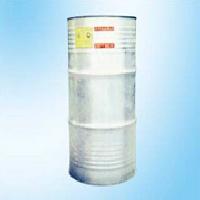-
Categories
-
Pharmaceutical Intermediates
-
Active Pharmaceutical Ingredients
-
Food Additives
- Industrial Coatings
- Agrochemicals
- Dyes and Pigments
- Surfactant
- Flavors and Fragrances
- Chemical Reagents
- Catalyst and Auxiliary
- Natural Products
- Inorganic Chemistry
-
Organic Chemistry
-
Biochemical Engineering
- Analytical Chemistry
-
Cosmetic Ingredient
- Water Treatment Chemical
-
Pharmaceutical Intermediates
Promotion
ECHEMI Mall
Wholesale
Weekly Price
Exhibition
News
-
Trade Service
Propylene carbonate is a widely used chemical compound in the chemical industry, and it is commonly used as a solvent, plasticizer, and electrolyte in various applications.
However, it is important to note that propylene carbonate can also pose certain safety hazards, especially if proper handling and storage procedures are not followed.
One of the primary safety concerns associated with propylene carbonate is its flammability.
Propylene carbonate is a Class 3 flammable liquid, which means it has a flash point of less than 23°C.
This means that it can easily ignite when exposed to heat or an ignition source, and it can burn rapidly with a large flame.
It is therefore essential to store and handle propylene carbonate in well-ventilated areas, away from any sources of heat or ignition.
Another safety concern with propylene carbonate is its toxicity.
While propylene carbonate is generally considered to be a safe chemical, it can cause irritation or injury if it comes into contact with the skin, eyes, or respiratory system.
Prolonged exposure to high concentrations of propylene carbonate can also cause headaches, dizziness, and nausea.
Therefore, it is important to wear appropriate personal protective equipment (PPE), such as chemical-resistant gloves and goggles, when handling propylene carbonate.
In addition to its flammability and toxicity, propylene carbonate can also pose environmental hazards.
It is not particularly biodegradable, which means it can persist in the environment for a long time if it is not properly disposed of.
It can also have negative impacts on aquatic life if it enters waterways in significant quantities.
Therefore, it is important to follow proper disposal procedures for propylene carbonate, and to minimize its use and disposal in environments where it could cause harm.
Despite the potential safety hazards associated with propylene carbonate, there are several steps that can be taken to ensure its safe use in the chemical industry.
One of the most important steps is to properly store and handle propylene carbonate.
This includes storing it in a cool, dry, well-ventilated area, away from any sources of heat or ignition.
It is also important to avoid exposing propylene carbonate to air or moisture, as this can cause it to degrade or become unstable.
Another important step is to wear appropriate PPE when handling propylene carbonate.
This includes wearing chemical-resistant gloves and goggles, and minimizing skin contact with the chemical.
It is also important to avoid ingesting propylene carbonate, and to seek medical attention immediately if it comes into contact with the eyes or skin.
In addition to proper handling and storage procedures, it is also important to follow proper disposal procedures for propylene carbonate.
This includes disposing of it in accordance with local and federal regulations, and minimizing its release into the environment.
It is also important to train employees on the safe handling and storage procedures for propylene carbonate, and to regularly review and update these procedures as necessary.
Overall, propylene carbonate is a useful and versatile chemical in the chemical industry, but it can also pose certain safety hazards if proper handling and storage procedures are not followed.
By taking appropriate safety precautions and following proper disposal procedures, it is possible to safely handle and use propylene carbonate in the chemical industry.







